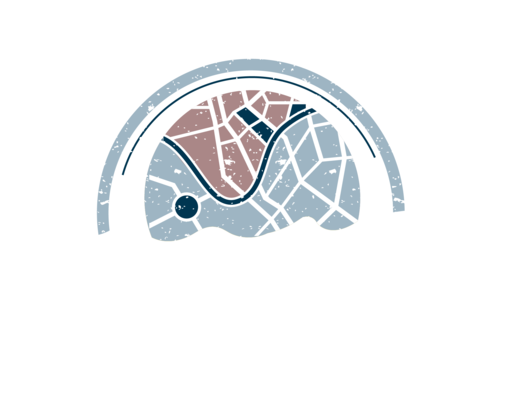How do modern researchers understand the deeper sources of economic abundance and technological change?
We are living in an age of unprecedented technological productivity. Our common inheritance of centuries of accumulated knowledge have given us the ability to produce at a rate far beyond what human labor alone is capable of. In the United States, we now produce enough to provide every family of four with about $220,000 annually.1 Economist Robert Solow won the Nobel Prize in 1987 for demonstrating the importance of productivity increases—based on the historical accumulation of technological knowledge—as the primary determinate of long-term growth as compared with current capital and labor in economic production.2
Since then, study after study has emphasized that the deeper sources of the changes that brought us to our modern wealth involve centuries of technological inheritance.3 This includes not only, for instance, the invention and refinement of computers (and many computer based technologies) in the modern age, but also such breakthroughs as the development of electricity for common use, the railroad, new agricultural techniques, and modern genetic breakthroughs—to name only a few.
Even more important, our modern progress stands on the shoulders of the invention of the printing press, the development of mathematics, chemistry, physics and even writing itself. These and many other gifts from the past are a common human inheritance. None of the computer or robotic technologies now so widely popularized would have been conceivable absent our huge common knowledge inheritance. What we add in new technologies at any point in time is like placing a pebble on top of the Gibraltar of commonly inherited knowledge.
On top of this, of course, huge amounts of public funding have financed the breakthroughs that allowed the development of modern computers, the internet, jet airplanes, satellite technology, hundreds of important drugs, new agricultural technologies, the laser, and many, many other developments which are at the heart of the modern economy. Many of the technologies fundamental to the internet, for example, were initially pioneered by the Advanced Research Projects Agency (ARPA) of the Department of Defense, which linked major research universities together through the so-called “ARPANET.”4
Historically, the federal government poured hundreds of millions of dollars into computing research—often the primary funder of computer science and electrical engineering research at the university level—while also acting as an initial purchaser of new technologies.5
How should the fruits of our common technological inheritance be distributed now and in future?
This is a wealthy society, one of the wealthiest in the history of the world. Scarcity, hunger, and poverty are not facts of nature, but consequences of the design of our political and economic institutions. Part of the problem is that we have a system that lets a small group of shareholders and corporate managers appropriate an overwhelmingly large portion of the wealth made possible, ultimately, by our common technological inheritance. We lionize the Steve Jobs and Mark Zuckerbergs of the world, while forgetting just how much of the underlying technological knowledge and infrastructure behind the profits they have generated stems from a shared scientific tradition and direct public investment.
A more thoughtful approach that recognizes the deeper historical sources of all modern technological and economic gains would begin by developing much higher minimum floors under economic activity and also develop tax and other ceilings. So, too, guaranteed jobs and incomes would acknowledge the commonly inherited sources of our current wealth, while at the same time providing reasonable incentives for entrepreneurs and inventors who help push forward to still more productive possibilities. Such economic security may also unleash the innovative capacities of those who lack the means to refine their ideas or launch a new invention, thereby democratizing innovation. As Steven Jay Gould has written, “I am…less interested in the weight and convolutions of Einstein’s brain than in the near certainty that people of equal talent have lived and died in cotton fields and sweatshops.”6
Ultimately, a society that already produces more than $220,000 for every family of four—and is likely over the next decades minimally to double this7 —could easily provide for very generous incomes for all and/or radically reduce the work week, provide both more LIBERTY and security.
How would the Pluralist Commonwealth deploy management of new technologies in new ways?
While we want to encourage entrepreneurship, initiative, and innovation, we should also make explicit the role of past and present public knowledge creation in generating new capital by encouraging public ownership stakes in companies working with new technologies. One pattern is through PUBLIC enterprises which provide a way to recapture a share of the wealth generated with public resources directly, rather than retroactively through struggles over taxation. Such investments also help in the development of meaningful PLANNING. Consider the Internet, which has certainly produced tremendous value, but which has largely been oriented towards profit-models which monetize human attention and interaction in ways that are often inimical to the development of an informed democratic polis.
Public investment, not only in broad technological and research advances and network infrastructure, but in the value-capturing businesses that rest on top of this enabling platform, can generate public revenue and help shape sectoral priorities. The COMMONS is also a promising design pattern for providing an explicit institutional basis for the inherently shared character of knowledge production. From software to creative work, new forms of licensing which enable, promote, and defend the rights of sharing are a template which is expanded and developed in the Pluralist Commonwealth as key forms of common ownership. Public users generate the vast majority of the content that drives the astronomical market valuations of private and semi-monopolistic companies like Facebook or Twitter. A much greater share of the profits from such commonly produced information and entertainment should be given over to the public that creates it.
The possibilities opened up by new technologies, such as Facebook and other social media platforms, are just that—possibilities. Absent sustained political organizing and pressure, it is entirely possible that corporations and status quo interests will utilize their power and positional advantages to direct technological change away from liberatory directions and toward their own bottom line. Techno-optimist visions are also clouded by the post 1970 slowdown in productivity growth (as economist Robert Solow quipped long ago, “You can see the computer age everywhere but in the productivity statistics”8 and by projections from economists like Larry Summers and Robert Gordon that we may be entering an extended age of slow growth or “secular stagnation.”9 All of this is not to discount the exciting space opened up by recent technological advancements. Marginal costs for some goods or services have plummeted, cooperative efforts have flourished, and self-provisioning through 3D printing and small scale manufacturing is a provocative possibility. However, technology cannot do the work of politics by itself. Significant and sustained efforts are required to turn possibilities into actualities.
What are some promising examples of this shift today?
For one thing, the technological infrastructure itself can be made public, as in Chattanooga, where the public utility provides world-class fiber-optic broadband, displacing corporations which would otherwise enjoy near-monopoly rents on the value generated from the provision of internet access.10 For another, there are growing numbers of efforts to develop “platform cooperatives” which democratize the gains generated by the new business possibilities enabled by a networked infrastructure. Instead of allowing services like Uber or Lyft to make massive profits through new technologies and the internet system, cooperative cab companies like Union Cab operating in Madison, Wisconsin or Alexandria Union Cab allow broader groups to gain from technologies developed and heavily dependent on public support.
The basic science and technology at the heart of both the modern computer and the internet were financed by government; and both obviously also drew upon a massive legacy of our historically inherited knowledge. A fully developed Pluralist Commonwealth would build upon these and many other efforts to capture and democratize the gains made possible in many, many areas, thereby translating knowledge into common economic security and ever increasing equity.
See also:
COMMONWEALTH, LIBERTY, PLANNING, PUBLIC
Further reading
Benjamin Kunkel, “Socialize Social Media!” n+1 Magazine, November 8, 2013.
Gar Alperovitz and Lew Daly, Unjust Deserts: How the Rich Are Taking Our Common Inheritance (New York, NY: New Press, 2008).
Mariana Mazzucato, The Entrepreneurial State: Debunking Public vs. Private Sector Myths (New York, NY: Anatham Press, 2014).
Michel Bauwens and Vasilis Kostakis, Network Society and Future Scenarios for a Collaborative Economy (New York, NY: Palgrave Macmillan, 2014).
- 1According to World Bank data from 2015, this number is now $223,639 for a family of four. “United States Data,” The World Bank, accessed on November 1, 2016.
- 2“The Sveriges Riksbank Prize in Economic Sciences in Memory of Alfred Nobel 1987,” NobelPrize.org, Nobel Media AB, last modified 2014, accessed November 10, 2016. For Solow’s original work on total factor productivity, see: Robert Solow, “A Contribution to the Theory of Economic Growth,” The Quarterly Journal of Economics 70 (1956).
- 3 See Gar Alperovitz and Lew Daly, Unjust Deserts: How the Rich Are Taking Our Common Inheritance and Why We Should Take it Back (New York, NY: The New Press, 2009).
- 4Gar Alperovitz and Lew Daly, Unjust Deserts: How the Rich Are Taking Our Common Inheritance (New York, NY: New Press, 2008), 78.
- 5Gar Alperovitz and Lew Daly, Unjust Deserts: How the Rich Are Taking Our Common Inheritance (New York, NY: New Press, 2008), 76.
- 6Steven Jay Gould, The Panda’s Thumb: More Reflections in Natural History (New York, NY: W.W. Norton & Company, 1980), 151.
- 7”GDP long-term forecast,” OECD, 2014, accessed November 11, 2016.”
- 8Robert M. Solow, “We’d Better Watch Out,” The New York Times Book Review, July 12, 1987, accessed November 11, 2016.
- 9Lawrence H. Summers, “Reflections on ‘New Secular Stagnation Hypothesis,” in Secular Stagnation: Facts, Causes and Cures, eds. Richard Baldwin and Coen Teulings, (London, UK: CEPR Press, 2014); Robert Gordon, “US Economic Growth is Over: The Short Run Meets the Long Run,” in Think Tank 20: Growth, Convergence and Income Distribution: The Road from Brisbane G-20 Summit (Washington DC: Brookings Institute, 2015), 18.
- 10Brian Fung, “How Chattanooga beat Google Fiber by half a decade,” The Washington Post, September 17, 2013, accessed November 11, 2016.





























